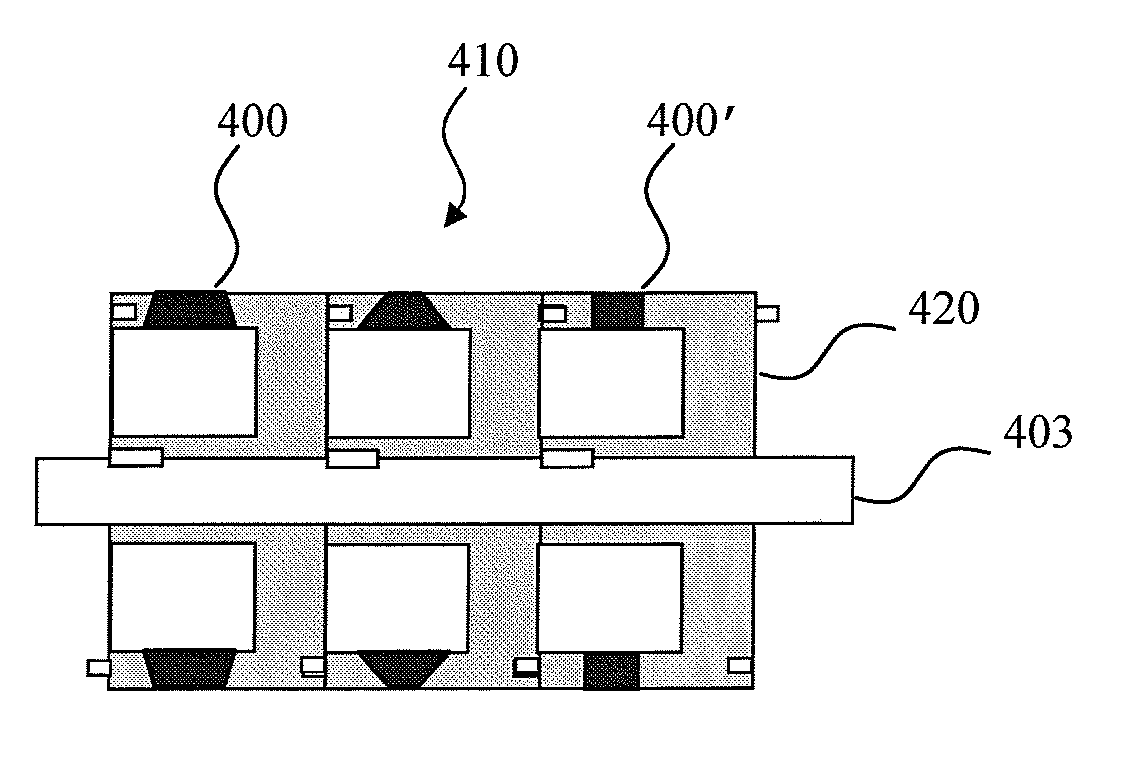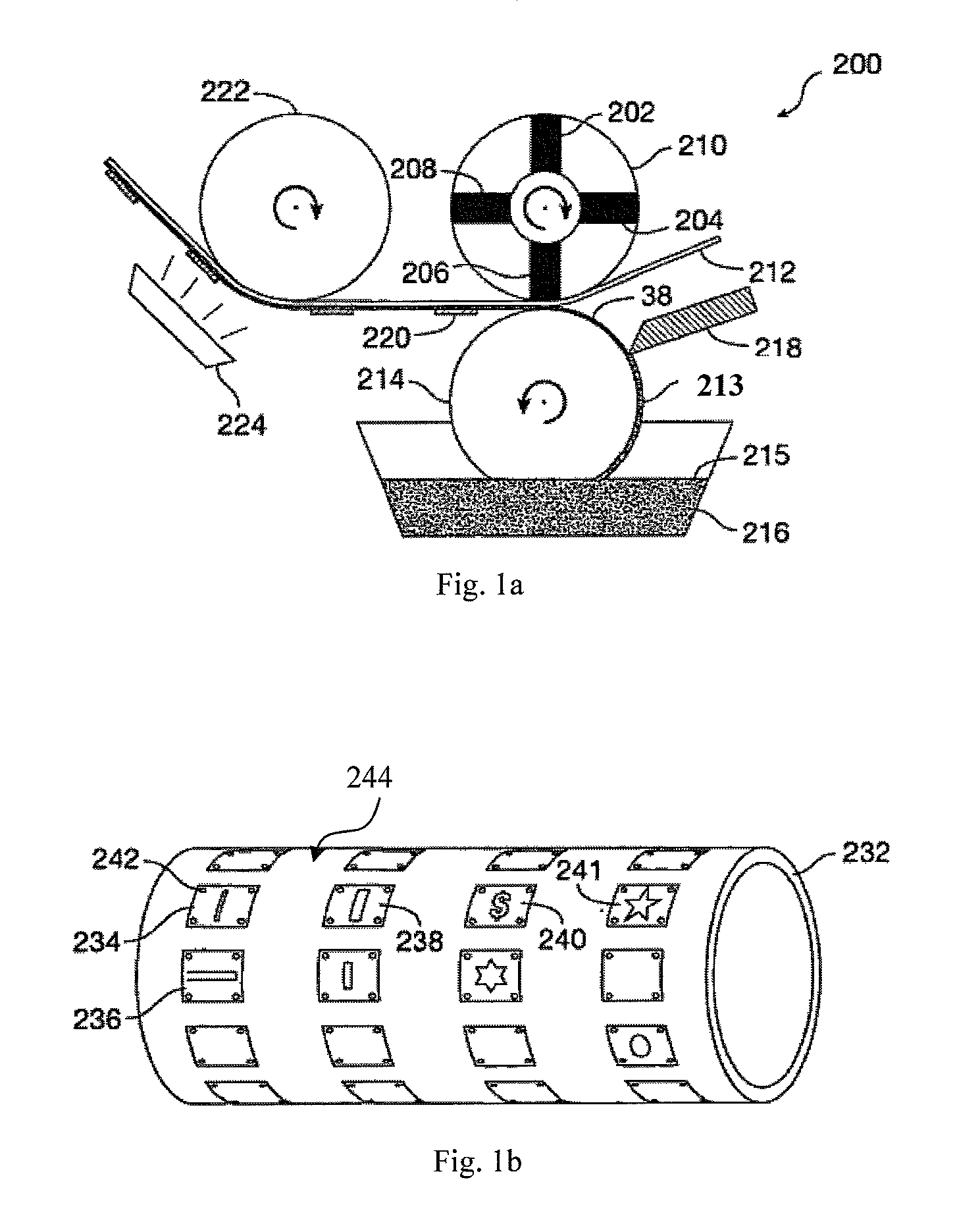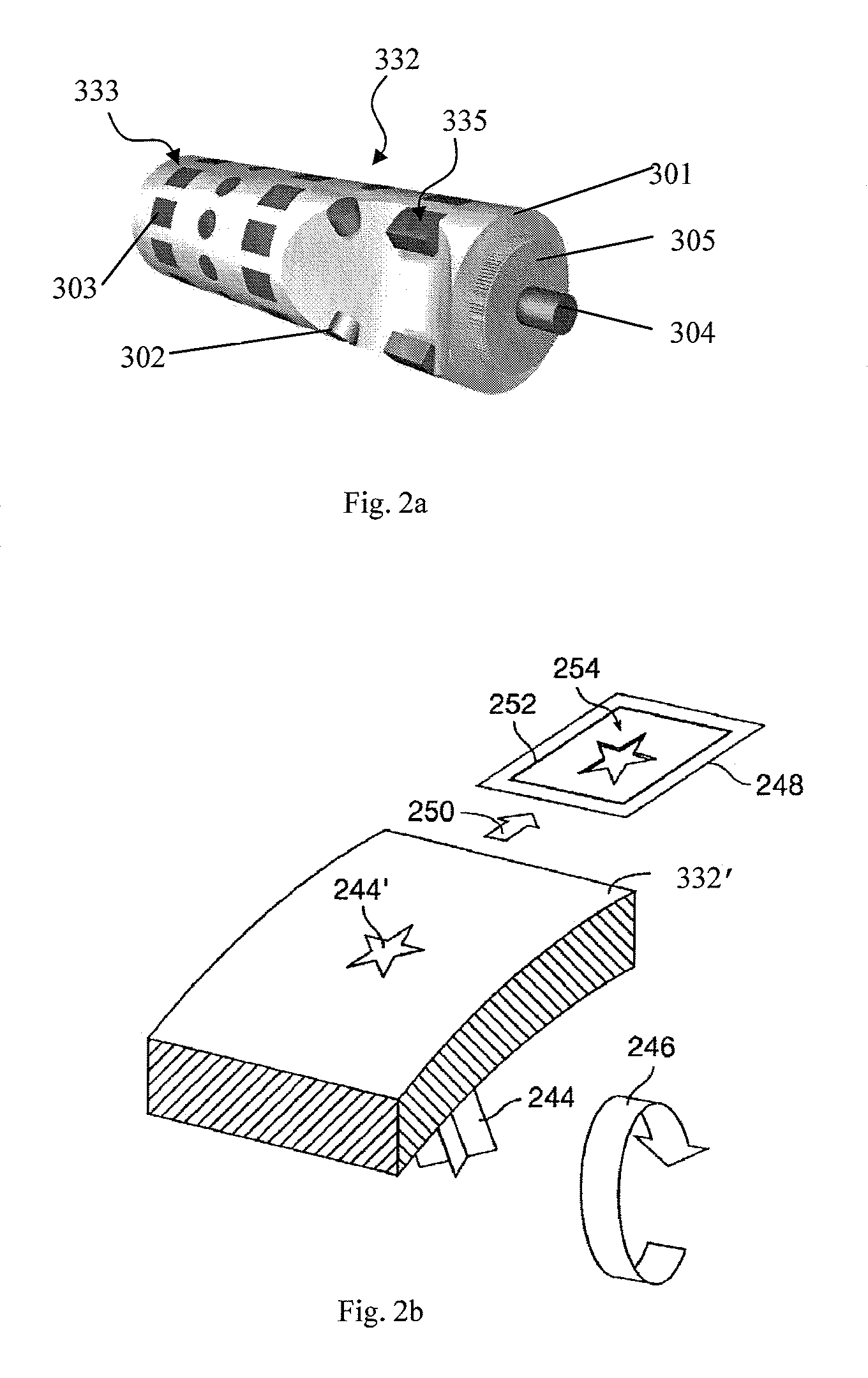Apparatus for orienting magnetic flakes
a magnetic flakes and apparatus technology, applied in the field of apparatus for aligning or orienting magnetic flakes, can solve the problems of high disadvantage, unfavorable high-speed printing process, and widely known optically variable devices intended to be noticed
- Summary
- Abstract
- Description
- Claims
- Application Information
AI Technical Summary
Benefits of technology
Problems solved by technology
Method used
Image
Examples
Embodiment Construction
[0058]Exemplary embodiments of the apparatus of the present invention for orienting magnetic flakes in a paint, ink or other fluid carrier printed on a substrate in a continuous linear process will now be described, first with reference to FIGS. 1a-1c.
[0059]FIG. 1a is a simplified side-view schematic of a portion of a printing apparatus 200 according to an embodiment of the present invention. An important part of the apparatus of the present invention is a magnetic roller, which is understood herein as a roller having magnetized portions and non-magnetized or differently magnetized portions. The term “magnetized portions” in relation to the roller of the present invention is used herein to mean a permanent magnet imbedded in the roller, or a selectively magnetized region of the roller adjacent to its surface, or an alternatively formed portion of a roller that has a pre-determined magnetization different from magnetization of surrounding it areas of the roller, so as to form a pre-...
PUM
 Login to View More
Login to View More Abstract
Description
Claims
Application Information
 Login to View More
Login to View More - R&D
- Intellectual Property
- Life Sciences
- Materials
- Tech Scout
- Unparalleled Data Quality
- Higher Quality Content
- 60% Fewer Hallucinations
Browse by: Latest US Patents, China's latest patents, Technical Efficacy Thesaurus, Application Domain, Technology Topic, Popular Technical Reports.
© 2025 PatSnap. All rights reserved.Legal|Privacy policy|Modern Slavery Act Transparency Statement|Sitemap|About US| Contact US: help@patsnap.com



